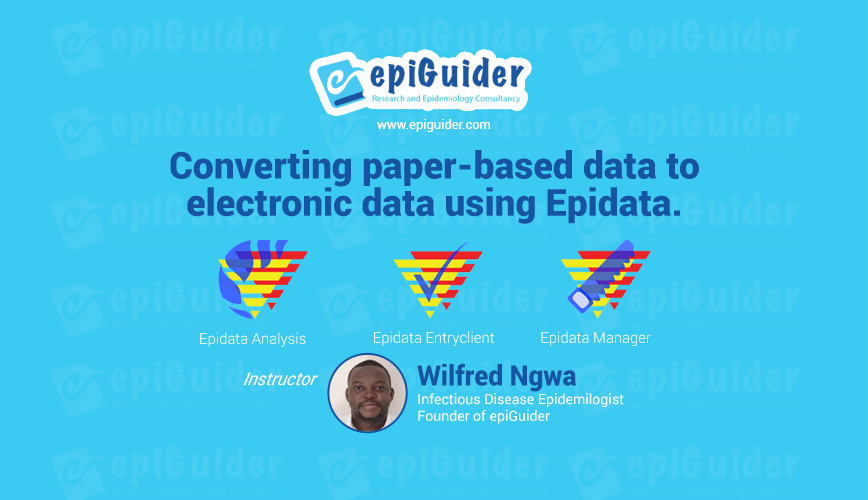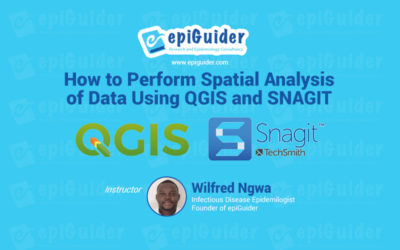Wikipedia, defines EpiData as a group of applications used in combination for creating documented data structures and analysis of quantitative data. The EpiData Association, which created the software in 1999 is based in Denmark. EpiData was developed in Pascal (which is a programming language) and uses open standards such as HTML (Hypertext Markup Language) where possible.
Why EpiData?
• The EpiData software is open access software available for download on http://www.epidata.dk
• does not interfere with operating systems when you install it,
• great online support available where you can ask questions and be provided with clarifications,
• the software is very small, the file sizes produced by the software quite small as well and this make sharing very easy.
• Stable software: rarely crashes and if it does, rarely will you lose your data.
• Easy data entry
• EpiData ensures data quality.
• You can also encrypt your files with confidential information.
Course Purpose:
The main purpose of this course is to teach participants how to convert paper-based data into electronic data in an efficient quality assured manner. More specifically, participants will:
• Learn how to create a data dictionary (also known as a data documentation sheet, codebook, Standard Operating Procedures, data entry guide, etc.).
• Learn how to configure or create a data capture form using EpiData.
• Learn how to perform basic statistical analyses (mostly descriptive and inferential) using EpiData and also how to present the analyzed data.
Why you should take the course:
In one of his presentations, Dr. Ajay Kumar who is the Deputy research Director of the international Union against TB and Lung Disease in New Delhi, describes Data Entry as the “Cinderella” of research methods as it is the most neglected. I will like to add here that this disregard for “Data Entry” is not only experienced in research but also in routine Monitoring and Evaluation systems as well.
Another reason why should take this course is that, there are not many tools available for converting paper-based data to electronic data that has the kind of functionality that come with EpiData.
The course makes use of a real-life project which participants will do in the company of the instructor.
Learning a new skill takes you a few steps higher on the job opportunity ladder
Course Requirements
Human requirements: No specific requirement apart from the commitment to acquire or develop a new skill
Tools: a computer; an active internet connection for downloading the EpiData software
Who this course is for?
The scope is large: Epidemiologists, Data Managers, Monitoring and Evaluation coordinators, Researchers, survey designers, Doctors, Nurses; etc.
Course Material (Click on each to download)
1) NCD_Chronic Condition Monitoring Card
2) Codebook_epiGuider_NCD_Project
3) The task for this course
Course Features
- Lectures 7
- Quizzes 0
- Duration 10 weeks
- Skill level All levels
- Students 8
- Certificate Yes
- Assessments Yes




